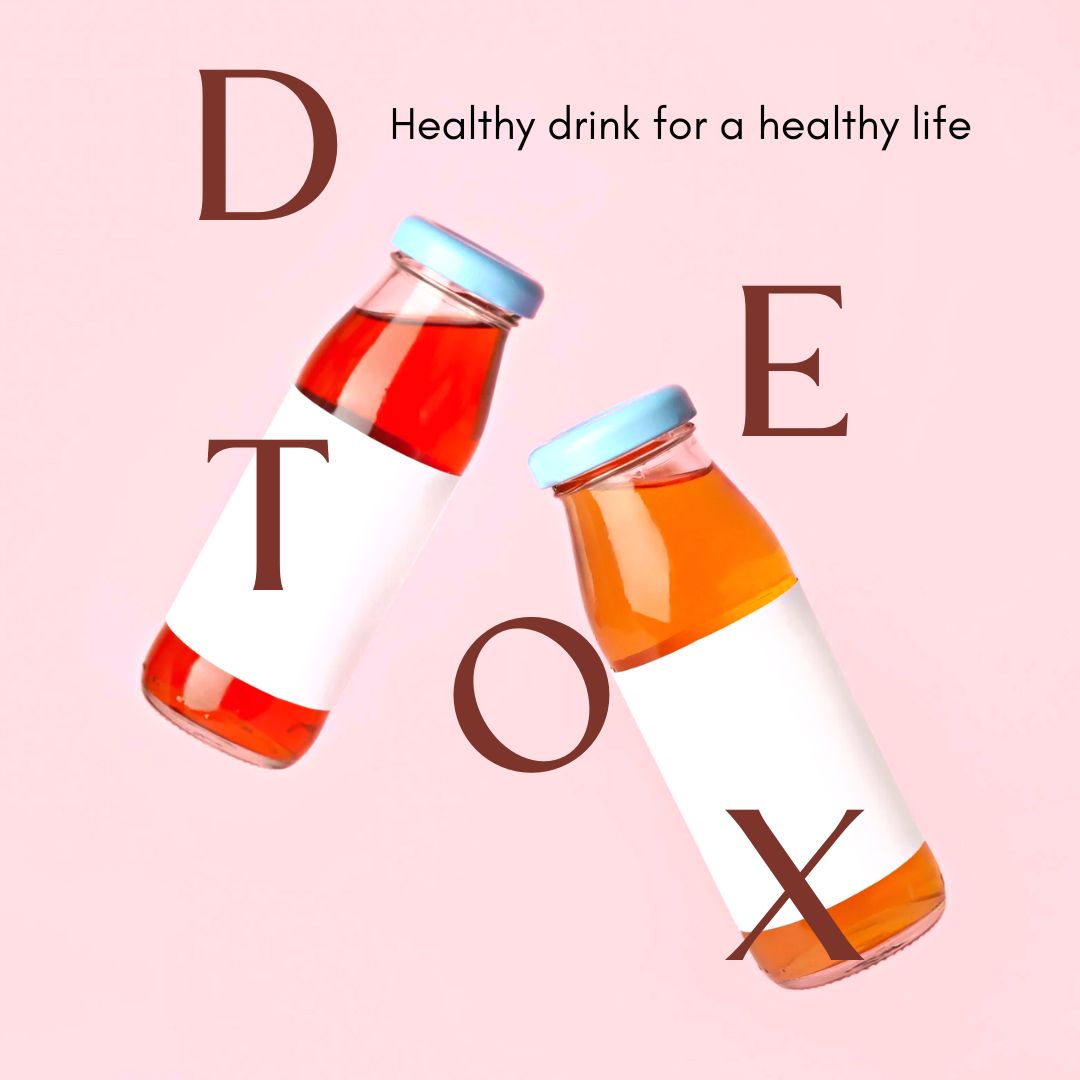The Truth About Detox Diets: Separating Fact from Fiction and Exploring Natural Alternatives
Detox diets have become a staple in modern health culture, with various programs and trends claiming to cleanse your body of toxins and promote rapid weight loss. From juice cleanses to fasting regimens, these diets promise immediate and transformative results. But are they really effective? Do they live up to the hype? Or are they simply another fleeting trend that lacks scientific backing?
In this article, we’ll take a closer look at what detox diets really are, the science behind them, the myths that surround them, and most importantly, how to support your body’s natural detox systems in a safe and sustainable way.
💡 What Is a Detox Diet?
Detox diets are usually promoted as regimens that “cleanse” the body by eliminating toxins through food restriction, fasting, or taking special supplements. These diets often claim to rid the body of harmful substances that can accumulate due to poor diet, environmental exposure, and stress.
Common detox practices include eliminating or reducing:
-
Processed foods: Foods high in unhealthy fats, refined sugars, and preservatives.
-
Sugar: Often removed to help stabilize blood sugar and reduce inflammation.
-
Caffeine and alcohol: Commonly cut out as they can dehydrate the body and put stress on the liver.
-
Certain fats and proteins: Some detox diets focus on reducing meat, dairy, and processed fats.
Popular detox regimens include:
-
Juice cleanses: Involving only the consumption of fresh juices made from fruits and vegetables.
-
The Master Cleanse: A fasting detox using a concoction of lemon juice, maple syrup, and cayenne pepper.
-
Raw food detox: A focus on consuming only raw fruits, vegetables, and nuts.
-
Herbal detox teas: Often marketed as “natural” cleanses, these teas contain herbs that act as diuretics or laxatives.
While these methods can seem appealing, they often fall short when it comes to providing long-term benefits.
🧬 How Your Body Detoxifies Naturally
It’s important to understand that your body is constantly detoxifying itself, every single day, without the need for extreme dietary interventions. In fact, your organs are perfectly designed to eliminate toxins and maintain internal balance. Here’s how it works:
-
The Liver: As the body’s primary detox organ, the liver processes and neutralizes toxins, breaking them down so they can be safely excreted.
-
The Kidneys: These filter your blood, removing waste products and excess substances, which are then excreted through urine.
-
The Skin: Sweating helps the body get rid of toxins and regulate body temperature.
-
The Lungs: These expel carbon dioxide and other pollutants as you breathe.
-
The Digestive System: The gut helps eliminate solid waste and excess substances through bowel movements.
Your body’s natural detox processes are highly efficient when supported by a balanced diet, hydration, and healthy lifestyle habits. Extreme detox diets are not necessary and may do more harm than good.
⚠️ The Problems with Popular Detox Diets
While the idea of detox diets may sound appealing, they often come with significant drawbacks, especially when followed for extended periods. Many of these diets lack scientific backing and may lead to:
-
Nutrient Deficiencies: Restricting certain food groups can result in inadequate intake of essential vitamins, minerals, and proteins.
-
Muscle Loss: Fasting or severely limiting caloric intake can lead to muscle breakdown, especially when protein intake is insufficient.
-
Fatigue and Dizziness: Extreme calorie restriction often results in energy deficits, which can leave you feeling tired, weak, or lightheaded.
-
Blood Sugar Imbalances: Sudden spikes or drops in blood sugar levels are common in juice cleanses or low-calorie detox diets.
-
Disrupted Gut Health: Detox diets may harm the gut microbiome, leading to digestive issues like bloating, constipation, or diarrhea.
❌ Fact: Most detox diets only result in the loss of water weight, not fat loss. This temporary drop in weight can quickly return once normal eating patterns are resumed.
Instead of resorting to extreme measures, consider natural and sustainable ways to support your body’s detox functions.
✅ What Actually Works: Natural Ways to Support Detox
There’s no need to follow trendy, restrictive detox diets. Instead, focus on evidence-based practices that help enhance your body’s natural detox systems. Here are some simple, effective strategies:
-
Eat Whole, Nutrient-Dense Foods
To support your liver and kidneys, focus on nutrient-rich, whole foods. These provide the vitamins and minerals your body needs to detoxify naturally. Include:-
Leafy greens (spinach, kale, collard greens) for their antioxidants.
-
Cruciferous vegetables (broccoli, cauliflower, Brussels sprouts) that help activate detoxifying enzymes in the liver.
-
Garlic and onions for their sulfur compounds, which support liver detoxification.
-
Citrus fruits (lemons, oranges, grapefruits) for vitamin C and to help stimulate liver function.
-
-
Hydrate Properly
Staying hydrated is essential for optimal detoxification. Aim for at least 8–10 glasses of water per day. Proper hydration helps flush toxins from your body through the kidneys and promotes healthy digestion. You can also enhance hydration with herbal teas like ginger or peppermint, which can support digestion. -
Prioritize Sleep
Sleep is one of the most effective detoxification tools your body has. During sleep, your body repairs itself and eliminates waste products from the brain. Aim for 7–9 hours of restful sleep each night to promote detoxification and overall health. -
Move Your Body
Physical activity is another powerful tool to support your body’s detox functions. Regular exercise increases blood flow, boosts lymphatic circulation, and encourages sweating, which are all vital for eliminating toxins. Aim for at least 30 minutes of moderate exercise most days of the week. -
Limit Harmful Substances
Reducing or eliminating exposure to substances that burden your liver and kidneys will help your body detoxify more effectively. Limit:-
Alcohol, which stresses the liver.
-
Processed sugars, which contribute to inflammation.
-
Caffeine and artificial additives, which can disrupt your metabolism.
-
🧠 Debunking Common Detox Myths
Many myths surround detox diets, making it harder for people to separate fact from fiction. Here are some common detox myths and the truth behind them:
-
Myth 1: You need a special diet to detox.
Truth: Your body’s organs already handle detoxification. By eating a balanced diet, staying hydrated, and exercising, you support your natural detox processes. -
Myth 2: Juice cleanses are the fastest way to detox.
Truth: Juice cleanses are often high in sugar and low in protein and fiber. While they may help you lose weight temporarily, they do not promote fat loss and can lead to nutrient deficiencies. -
Myth 3: Detox teas help you lose belly fat.
Truth: Many detox teas contain laxatives or diuretics that can cause water weight loss but do not contribute to actual fat loss.
🥗 One-Day Sample Clean Eating “Detox” Plan
Instead of turning to extreme detox diets, focus on nourishing your body with whole, balanced meals. Here’s a simple one-day plan to support your body’s natural detox systems:
Morning:
-
Warm lemon water to kickstart your metabolism.
-
Oatmeal with fresh berries and a sprinkle of chia seeds.
Lunch:
-
Grilled salmon with quinoa and sautéed spinach.
Snack:
-
An apple with almond butter for protein and healthy fats.
Dinner:
-
Stir-fried tofu with broccoli and brown rice.
Drinks:
-
Herbal tea and at least 2 liters of water throughout the day.
🌿 Conclusion: Detox the Smart Way
The truth is, your body doesn’t need expensive detox products or extreme fasting to cleanse itself. By following a healthy lifestyle that includes whole foods, regular exercise, hydration, and plenty of sleep, you can support your body’s natural detox processes.
💚 Takeaway: The best detox is a consistent, healthy lifestyle—not a quick fix.

